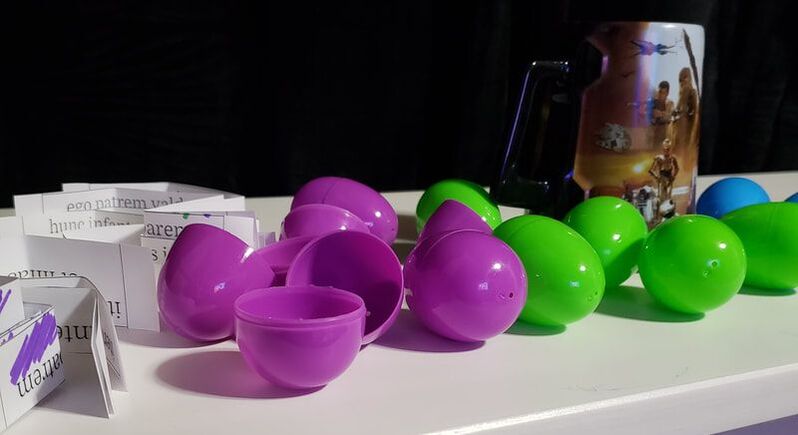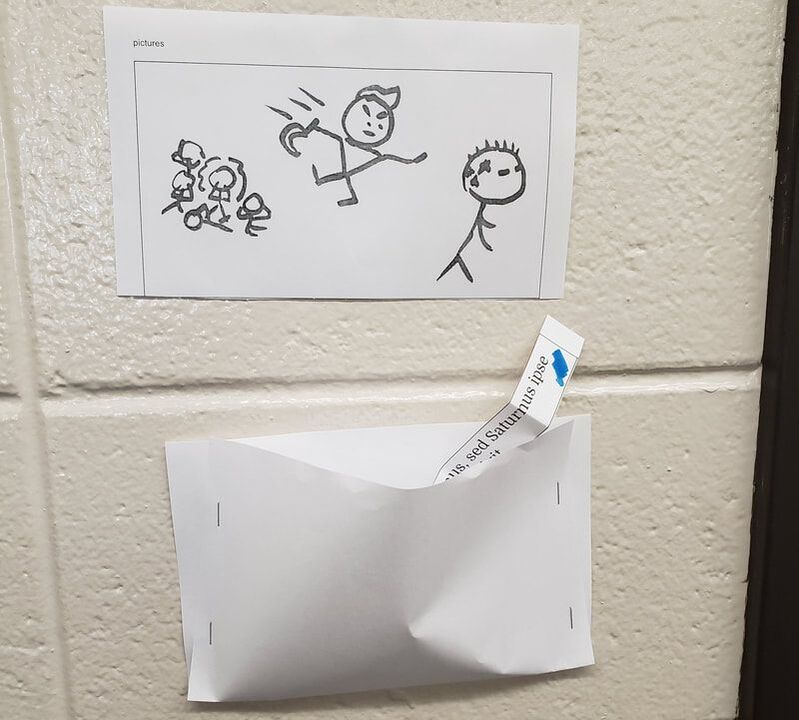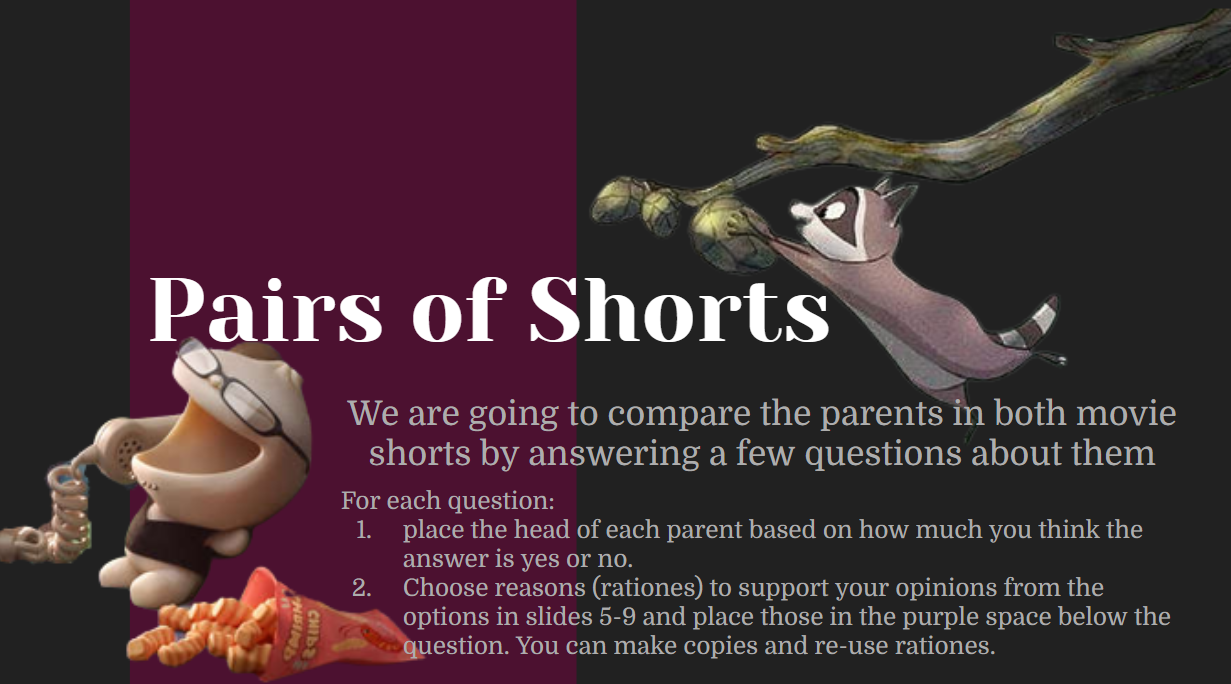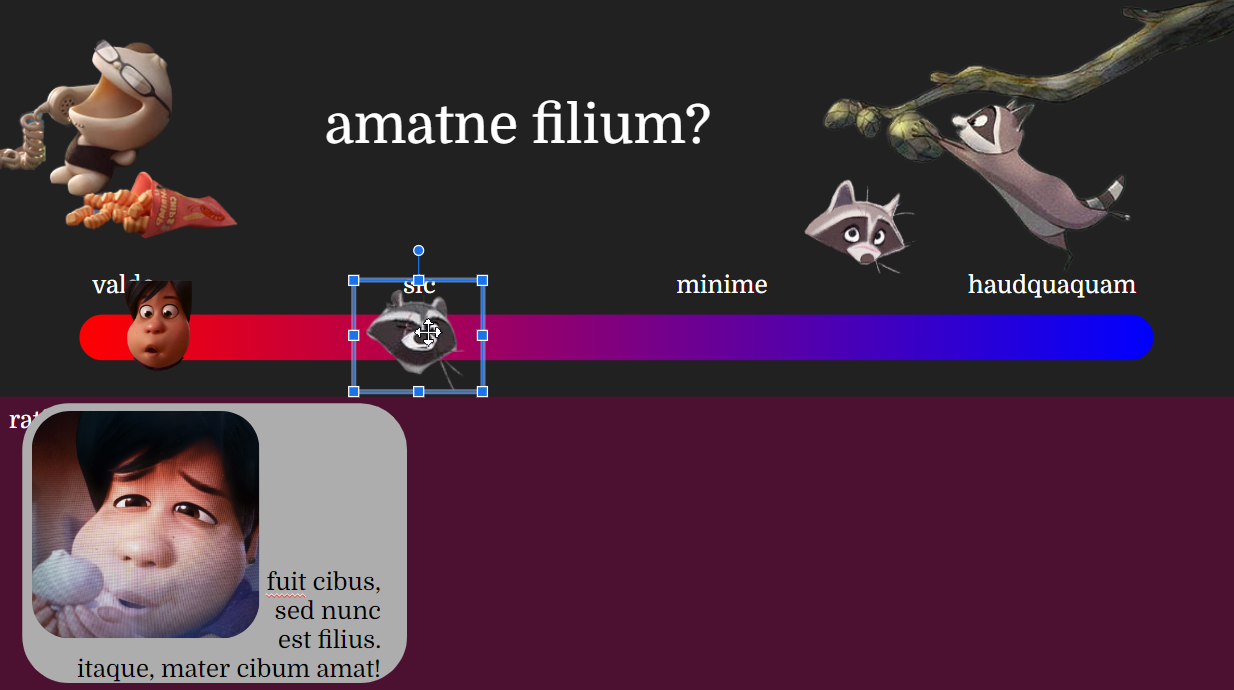|
I was feeling creative and wanted a new way to review a reading last week. I have also been running at about 100% capacity for about a month now and am beginning to tire out, so I wanted an activity that would feel fresh, new, and fun to the students, but give me a break in terms of my own energy output. My solution was to create an Easter Egg Hunt! It's a variation on matching sentences to pictures, but much more engaging. Prep:
Running the Activity: Some of the eggs will be absolutely obvious. Students will be intrigued as they enter. It will be fun to wait to tell them.
0 Comments
I thought it might be fun for me and my students to play with sidewalk chalk this week. After all, I'm 43 and I still like playing with sidewalk chalk, so I figured high school students haven't grown out of it either. I wasn't wrong! They really enjoyed the activity and my other classes came in commenting on the pictures they saw. Plus, the assignment was both easy to prep and easy to run. Prep: I put the following instructions on the board along with a list of new vocabulary words: In small groups of your choice (up to five students), write a sentence using as many of new vocabulary words you can. You can also include other vocabulary words that we have used in Latin I and Latin II in your sentence.
Aside from being fun, the best part of this activity is the free advertising it gives your program! Other students in your school are sure to notice Latin sentences and stick figure art around campus, especially in fun chalk colors.
So, low prep, in-context vocabulary practice, repetitions from reading other students' sentences, fun with sidewalk chalk, AND free advertising? This activity is all wins! So I have been thinking for a while about how to make the time spent with movie shorts more meaningful without making it more repetitive. I am always all about repetition without being repetitive! This idea came to me at the very end of last school year, and I couldn't wait to put it into action--which is why it is the first thing I did with my Latin II class this year. It's simple in premise, and only a little complicated in application, but I think the benefits are really outstanding. The premise is: for two days in a row, do two movie talks, then on a third day, compare and contrast them in some way. The application takes a little more finesse, I realized, as I looked at the vocabulary I needed to teach and reinforce, and realized I needed to do two things to make this work:
Day 1 Bao Movie Short If time permits, Vocabulary Match Cards Day 2 Far From the Tree Movie Short If time permits, Vocabulary Bricks Day 3 Pairs of Shorts Activity* Please see explanation below! Discussion in class about the characters and students' evaluations of them and their motivations. Helpful Resources!
Final Takeaways I think this was a successful shakeup of the normal movie talk pattern. Students stayed engaged with the vocabulary because there was always something new to see and hear. I enjoyed the change in pattern myself and felt more excited to teach each day when there was new material, even though the words were the same. My eventual plan is to do something similar with less scaffolding for the discussion, but for right now, this is Latin II and we haven't even attended a full week of school, so I'll let them ease in a little! This first ran in Pomegranate Beginnings in January, 2017. I thought with school starting or about to start for some of us, we could all use some easy ideas!  An image from a micrologue I made for my students. An image from a micrologue I made for my students. "Dictatio" is one of the few words my students dread in my class. I'm going to admit that it's a nice break for me--requiring only voice and repetition and pretty much no creativity--and it sometimes finds its way into my plans simply because I need a day that does not require all of my energy. Dictationes fall within my Comprehensible Input toolbox because as long as I keep the vocabulary limited, the dictated sentences provide valuable repetition. But students rarely enjoy it. Writing down a dictation is not a compelling activity. I have tried to spice it up by making the dictatio its own story, or even a lead in to the main story I'm working toward but missing crucial information. That has its place, and it helps. But it does not keep students from moaning "eheu!" the next time they see "Dictatio" listed on the day's schedule. This year I have only done a traditional dictatio twice so far, and I am working to slowly replace the practice completely for myself with equally low-stress but much more compelling versions of sentence listening and writing. There is something useful for acquisition in writing something down, and auditory repetition of understandable messages is universally good for acquisition. So I don't want to give up those strengths. I just want less "eheu" and more "euge" while students acquire Latin. Keith Toda often cites Carol Gaab's statement, "The mind craves novelty." If I simply replace dictatio with just one activity and do it every other week or so, students will grow as bored of that activity as they are of dictatio. Instead, I've been gathering dictatio options. With the new semester coming up, I thought I'd share the dictatio options I keep on hand. I hope to continue to add new twists and ideas to this list.
One way Miriam and I were able to bring purpose to our dictation type activities last quarter was to either
|
Categories
All
Archives
November 2022
AuthorRachel Ash is a teacher, author, seamstress, mother, wife, and overdescriber. She also loves a good list. |







 RSS Feed
RSS Feed
